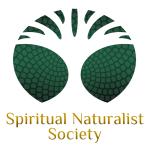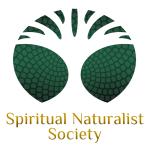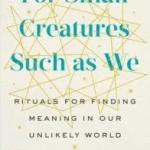Miracles are not contrary to nature, but only contrary to what we know about nature.
— Augustine of Hippo
So, what is Spiritual Naturalism, anyway? Maybe you’re asking that question for yourself since you found SNS. Maybe your quest for a little more spirituality with your naturalism or a little more scientific “umph” with your “spiritual but not religious” led you to discover SNS in the first place. Maybe someone else has asked you about this community you’ve been hanging out with online at the Wednesday evening socials hosted by DT Strain or the monthly secular mindfulness meditation sessions hosted by Rick Heller.
When I took the “SN 101 Introduction to Spiritual Naturalism” course, my answer to the question “What is Spiritual Naturalism” was this: “Spiritual Naturalism is an evidence-based approach to spirituality that finds the sacred within the natural order of the Universe and invites human participation in the sacred through awareness, meaningful ritual, and practice.”
I found Spiritual Naturalism along my own journey out of institutional religion.(1) While an important part of my experience has included letting go of dogma and absolute beliefs, I continue to value such spiritual practices as faith (as an act of entrusting), meditation, prayer, community, and helping others.(2) It seemed natural to look for other people interested in engaging in spiritual practices along with a naturalistic understanding of reality.
It would be unfair to ask Spiritual Naturalism to hold the weight of everything. In my experience, no single philosophy can do that. At the same time, a philosophy that remains only theory is of little value. So, however great I think Spiritual Naturalism may be philosophically, of what use is it in my everyday life? I enjoy being in nature, whether in my backyard watching birds, or in the desert mountains of the Texas Big Bend. Many traditionally religious people enjoy nature too. Practicing Spiritual Naturalism helps me enjoy nature as it is, for its own sake rather than having to point toward some deeper meaning or more important reality. As the Zen saying goes, “Mountains are mountains, and rivers are rivers” once again.
Practicing Spiritual Naturalism supports me personally, as a human being and also as a hospice professional coordinating human-centered end of life care and grief counseling for a diverse population of patients and their loved ones. Death, like birth, is a sacred time of transition and change around which has arisen much superstition and magical thinking. Practicing Spiritual Naturalism helps keep my feet on the ground in the precincts of death and dying in a way that does not need to search for a reason for what is happening. Maybe there is no “so-that”, maybe there is only “this”.
Birthing, living, and dying we are all people who suffer and we share a desire for ourselves and our loved ones to be happy. Practicing Spiritual Naturalism helps me be present with attention and compassion, meeting each person where they are and supporting them in ways that make sense to them based on their own philosophical, religious, and spiritual orientations.
Elizabeth MacKinlay—an Associate Professor in the School of Education at the University of Queensland, Australia—and her colleagues have noted that, “The concept of spirituality is about core meaning and connectedness, and it is from this that we respond to all of life.” A person’s sense of ultimate meaning can be mediated through relationships; creation/the environment; religion (ritual); and the arts with the goals of transcending loss/disabilities; finding hope; finding intimacy with others or the divine (however defined); and finding final meanings.(3) Some people look to the supernatural for final meanings; Spiritual Naturalists find final meanings within Nature.
One of the arts I enjoy are movies. When my partner and I recently re-watched Interstellar (Paramount Pictures 2014), my attention was arrested by the following lines which, for me—as with the Augustine quote, above—get at an unnamable center of Spiritual Naturalism:
Cooper: You’re a scientist, Brand.
Brand: So listen to me when I say that love isn’t something that we invented. It’s… observable, powerful. It has to mean something.
Cooper: Love has meaning, yes. Social utility, social bonding, child rearing…
Brand: We love people who have died. Where’s the social utility in that?
Cooper: None.
Brand: Maybe it means something more—something we can’t yet understand. Maybe it’s some evidence, some artifact of a higher dimension that we can’t consciously perceive. I’m drawn across the universe to someone I haven’t seen in a decade, who I know is probably dead. Love is the one thing we’re capable of perceiving that transcends dimensions of time and space. Maybe we should trust that, even if we can’t understand it.(4)
In my own lived experience, I have observed that love has meaning, which is both evolutionarily necessary while also including and transcending reason. My human awareness and practice of love is an important part of my own naturalistic spirituality. It continues to open me to wonder at the mysterious and the miraculous within all of Nature.
__________
Subscribe to The Spiritual Naturalist Society
Learn about Membership in the Spiritual Naturalist Society
The Spiritual Naturalist Society works to spread awareness of spiritual naturalism as a way of life, develop its thought and practice, and help bring together like-minded practitioners in fellowship.
SNS strives to include diverse voices within the spectrum of naturalistic spirituality. Authors will vary in their opinions, terms, and outlook. The views of no single author therefore necessarily reflect those of all Spiritual Naturalists or of SNS.
__________
Notes:
(1) You can read my account of my spiritual journey, which was my first article as a guest contributor to SNS here: https://www.snsociety.org/embracing-reality-a-parable/.
(2) You can use the search function above to read the articles I have written on some of these topics.
(3) McKinlay, Trevitt, and Aust, Spiritual Care and Ageing in a Secular Society, The Medical Journal of Australia, published online at: https://www.mja.com.au/journal/2007/186/10/spiritual-care-and-ageing-secular-society (2007).
(4) Interstellar (Paramount Pictures 2014).













